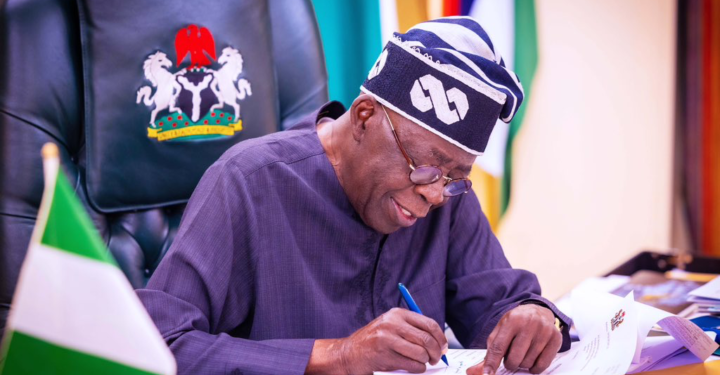In response to widespread protests over escalating living costs and economic hardship, the Federal Government of Nigeria has allocated ₦570 billion to support state governments. This move aims to bolster livelihood programs and provide relief to citizens facing severe economic strain.
President Bola Tinubu made the announcement in a national address on Sunday, revealing that the total fiscal revenue for the first half of 2024 reached ₦9.1 trillion. This figure marks a notable increase compared to previous years and reflects enhanced revenue generation efforts by the current administration.
President Tinubu highlighted that over 600,000 nano-businesses have already benefited from nano-grants, with plans to extend support to an additional 400,000 businesses. The funds are part of a broader strategy to reduce Nigeria’s debt burden, which has seen a decrease in debt service obligations from 97 percent in 2023 to 68 percent in 2024.
The President also reported that the government has cleared approximately $5 billion in outstanding foreign exchange obligations without disrupting its programs. This debt reduction has enabled increased expenditure on critical sectors such as education and healthcare.
Addressing the nation’s reliance on oil and neglect of its gas resources, Tinubu emphasized the administration’s investment in Compressed Natural Gas (CNG) as a measure to reduce the cost of fuel imports. This initiative is expected to save the country over ₦2 trillion monthly, redirecting funds toward essential services.
Tinubu’s speech also acknowledged the ongoing protests that began on August 1, 2024, and pledged to address the concerns of demonstrators. He attributed the significant increase in government revenue to improved measures against financial leakages, automation, and creative funding strategies that do not impose additional burdens on citizens.
Looking forward, the administration plans to distribute one million conversion kits for commercial vehicles, which are major consumers of imported fuel. This initiative aims to reduce transportation costs by approximately 60 percent and mitigate inflationary pressures.
Despite Nigeria’s status as Africa’s largest oil producer, the country continues to rely heavily on imported petroleum products due to limited refining capacity. The President’s address underscored the ongoing efforts to address these challenges and foster economic stability through innovative solutions and strategic investments.










